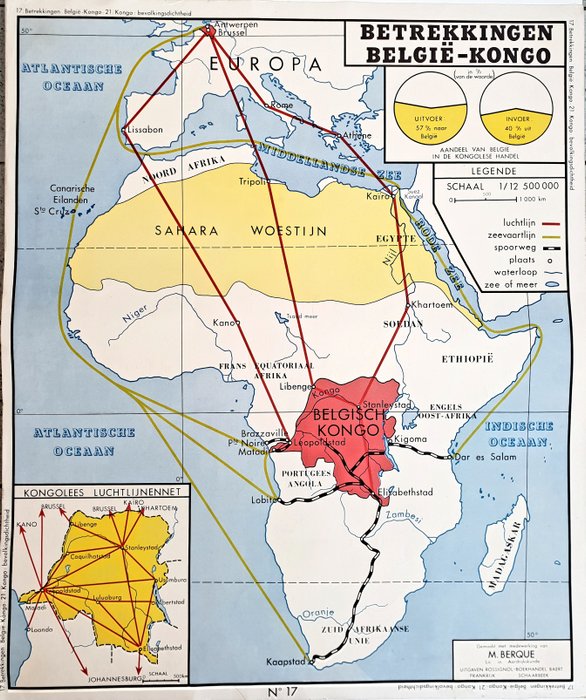
The Congo Free State and the Belgian Congo
A satirical work about the atrocities committed in the Congo, from 1903, based on contemporary accounts
House of Commons Debate 20 May 1903 vol 122 cc1289-332
Download file from this website. This volume contains letters and reports compiled for the Parliamentary Enquiry into the Congo Free State.
Stengers, J. and Vansina, J. (1985) “King Leopold's Congo, 1886–1908,” in Oliver, R. and Sanderson, G. N. (eds) The Cambridge History of Africa. Cambridge: Cambridge University Press (The Cambridge History of Africa), pp. 315–358. doi: 10.1017/CHOL9780521228039.009.
Jewsiewicki, B., Brett, Y. and Roberts, A. (1986) “Belgian Africa,” in Roberts, A. D. (ed.) The Cambridge History of Africa. Cambridge: Cambridge University Press (The Cambridge History of Africa), pp. 460–493. doi: 10.1017/CHOL9780521225052.011.
Download the full text of the document.
Download the full text of the document.
Podcasts
Post-Colonial Era: Zaire and the Democratic Republic of Congo
Despite the belief expressed during the Second World War by the colonial powers that the subject peoples of the empires were totally unsuited to self-government, within twenty years the colonial empires had effectively ceased to exist. Why did this happen? This essay looks at decolonisation in Turkey, Iran, China, India, the Far East, Indo-China, Gold Coast, Algeria, Congo, Rhodesia.
Young, M. C. (1984) “Zaire, Rwanda and Burundi,” in Crowder, M. (ed.) The Cambridge History of Africa. Cambridge: Cambridge University Press (The Cambridge History of Africa), pp. 698–754. doi: 10.1017/CHOL9780521224093.016.
This ePublication focuses on the interactions between the decolonisation process and the European integration process, with a particular emphasis on French and British decolonisation. Topics include decolonisation in Asia, the emergence of the Third World, and decolonisation in Africa, and the repercussions.
From the late 18th century, decolonisation was a central defining historical trend, which shaped the global system of states as it exists today through the release of revolutionary forces. Decolonisation continues to influence the relationship between the European continent and the rest of the world.
Professor Sir Richard Evans examines why the European global empires collapsed so suddenly in the third quarter of the 20th century, and describes the events in Asia, India, Middle East and North Africa, including the Suez Crisis.

CIA World Factbook: Choose a country from the drop-down menu and then About > History